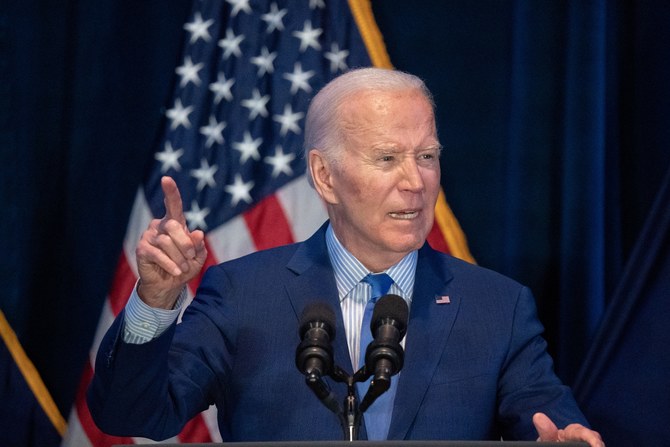
The Middle East in general and the Arabian Gulf in particular enjoy a vital geographic and geopolitical location in the world. This is due to the region’s multiple economic, military and strategic strengths.
This geographic location, coupled with the region’s rich history, is a positive asset for the Middle East. At the same time, due to the region’s uniqueness, it has long been a hotly contested area of conflict, with powers vying for influence, and domination, as well as aiming to contain rival powers. During the 20th century, the world witnessed a lengthy Cold War between the only two major global powers of the time: The US and the Soviet Union. The Cold War also led to more overt conflicts, most of which took place in the Middle East and Southwest Asia.
For decades throughout the 20th century, the Middle East endured horrendous suffering as a result of superpower competition. The US emerged as the decisive victor when the Soviet Union collapsed in 1991, leaving a unipolar world effectively run by the US, which controlled global decisions. At the beginning of the 21st century, China emerged on the global stage, flexing its muscles as a nascent superpower and showing exceptional economic growth. Shortly after China’s emergence, Russia began its own return to the international arena, finding a foothold by taking advantage of the so-called Arab Spring. Moscow was helped in this by Washington’s isolationist and hesitant approach — the Kremlin seized this opportunity to return to the Mediterranean arena via the Syrian crisis.
Former US President Barack Obama was somewhat naive in his belief that Russia’s engagement in the Syrian crisis would tie it down in muddy grounds from which it could not easily exit. Almost five years after Obama’s miscalculation, it has become even clearer that Washington’s assessment of the situation was woefully inaccurate and that, far from being handicapped by its involvement in Syria, Russia has used it to attain a strong foothold in the country and the region. It could never have dreamed of achieving this if it was not for Obama’s fatal hesitation in regards to the Syrian crisis and his drawing of “red lines” that he was unwilling or unable to act upon.
China, meanwhile, has also continued to steadily expand its global influence, depending on economic power and financing development projects, as well as adopting an anti-interventionist policy to avoid any overt meddling in the internal affairs of other countries. China has also depended on its globalization policy, and it seemed initially to be a win-win strategy, with Beijing presenting technologically and industrially advanced products at competitive prices, which Western rivals were unable to match, quickly enabling it to dominate most of the world’s markets. This led to China experiencing major economic growth, which now threatens the US’ status as the world’s economic powerhouse.
The US sees China’s increasing power as a genuine threat to its interests in its areas of influence worldwide. Anyone listening to US researchers and experts discussing the reasons for America’s displeasure at China’s growing economic clout and Russia’s global presence will realize that Beijing poses both a direct threat and a serious challenge to US hegemony, albeit to a lesser degree than Moscow.
In light of these new realities in a multipolar world and the resulting disputes, both harsh and soft, over control of the Middle East — particularly its massive resources and geographically strategic locations — we find that Washington is renouncing its security commitments and strategic alliances in the region one after another under the guise of pivoting to the Pacific in order to confront China and its threat to US interests. China’s political and economic clout is not confined to this region — it also extends to Southwest Asia, Africa and elsewhere.
If this dispute between the US and China intensifies, we will witness attempts to polarize and divide the region, with leaders seeking to align themselves with one or the other, as was the case during the Cold War. The realities we are witnessing at present show that the region’s countries are connected more strongly to the Eastern world economically than the West, since that is where most of the Gulf’s oil is exported to. It is equally true, however, that regional countries are also tied to the West, primarily through importing advanced technology and weapons. Therefore, these countries cannot become a party to any conflict between these external powers.
Far from being handicapped by its involvement in Syria, Russia has used it to attain a strong foothold in the region.
Dr. Mohammed Al-Sulami
In the end, the Arabian Gulf and most of the region’s countries have strategic ties with the West and with the US in particular. However, we also find that the US is reluctant to maintain any military or political presence in the region, with its withdrawal creating a major and potentially disastrous security vacuum.
It is within the realms of possibility that any such security vacuum would quickly be filled by countries such as Russia and China. If the US insists on complaining about the presence of these two rivals in the region, the future will become even more difficult and far costlier for the US.
It is essential, therefore, that the US should not use the loss of its influence and power in the region as a cause for complaint, as Washington actively opted for this policy, having chosen a strategy of withdrawal and retrenchment. The US has no right to condemn the region’s countries if they choose to forge relations with other powers in order to protect their interests.
All in all, the equation is crystal clear: If you want to lead, you must pay the price for doing so; or, if you’re unwilling to pay that price, you must accept that this leadership position has been ceded to others and accept the consequences of that decision. But, having overturned the milk carton, you should not then cry over the spilled milk.












